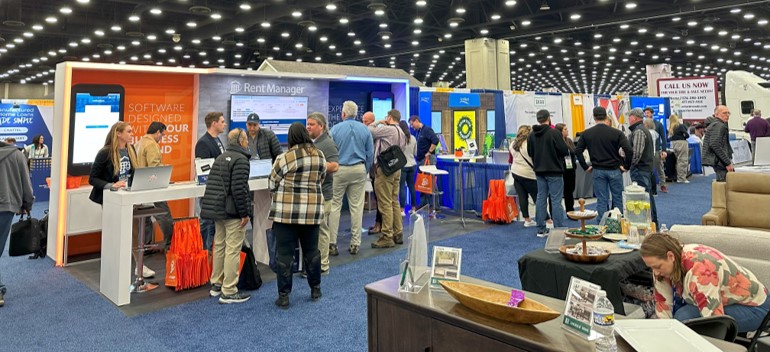The world of resident screening is constantly evolving to meet new challenges and adapt to changing regulations. For property managers and landlords, staying compliant with federal regulations is crucial to ensuring a smooth and legally-sound screening process. One of the latest developments in this field is the new federal guidance on adverse action letters, which has far-reaching implications for anyone involved in resident screening. Let’s delve into the details of this guidance, its impact, and how it affects property managers and landlords.
Adverse Action Letters: An Introduction
Before we dive in, let’s revisit what adverse action letters are and why they matter in resident screening. An adverse action letter is a formal notice sent to an applicant who has been denied housing or subjected to adverse terms and conditions—such as requiring a co-signer or larger deposit on a lease—based on information obtained from their consumer report—including their credit report, criminal background check, or rental history report. These letters are a fundamental part of the Fair Credit Reporting Act (FCRA), which governs how consumer reports are used in various industries, including resident screening.
The FCRA requires that, when an adverse action is taken based on information from a consumer report, the landlord or property manager must provide the applicant with a written notice. This notice must contain the following information:
- The name, address, and phone number of the consumer reporting agency (CRA) that provided the report.
- A statement that the CRA that supplied the report did not make the decision to take the unfavorable action and can’t give specific reasons for it.
- A notice of the applicant’s right to dispute the accuracy or completeness of any information the CRA furnished.
- The right to receive a free report from the CRA if the applicant asks for it within 60 days.
New Federal Reminders for Adverse Action Letters: What You Need to Know
In July 2023, federal regulators issued detailed “reminders” to landlords of their obligation to inform tenants and prospects of their rights related to the content and delivery of adverse action letters. This guidance aims to ensure greater transparency and accuracy in the tenant screening process. Here are some key points to consider:
- More Detailed Information: The guidance recommends that adverse action letters provide more detailed information about the reasons for the action. It also reminds landlords of additional obligations for certain public housing programs and when a credit score impacts a decision. This includes specifying which aspects of the consumer report led to the decision, such as a low credit score or a criminal record.
- Include the Consumer Screening Report: Recent guidance strongly encourages landlords to provide applicants with a copy of any consumer screening report used when making an adverse action determination. This allows rental applicants to understand the basis for any denial, fully assert their rights with tenant screening companies, and more effectively correct their records.
- Digital Delivery: With the proliferation of digital communication, new guidance emphasizes the option for delivering adverse action letters electronically, provided that the applicant consents to electronic delivery. This can streamline the process for both parties, making it more convenient and efficient.
- Timing: The guidance reaffirms prompt delivery of adverse action letters after making an adverse decision. This is typically within 30 days of the decision, ensuring that applicants receive timely notification.
Impact on Property Managers and Landlords
The new federal guidance on adverse action letters has several significant implications for property managers and landlords:
- Compliance is Key: Staying compliant with the FCRA and the new guidance is essential to avoiding legal issues. Failing to provide accurate and timely adverse action letters can lead to costly lawsuits and damage your reputation.
- Review Screening Processes: Property managers and landlords should review their processes to ensure they are compliant with the new guidance. This may involve updating templates for adverse action letters to include more detailed information about the reasons for the decision. Additionally, ensuring that electronic delivery methods are secure and compliant is crucial to meet the new standards.
- Educating Staff: Property management teams should invest in educating their staff about changes in the law and the new guidance. Ensuring that all employees involved in resident screening are aware of their responsibilities will help maintain compliance and transparency.
Conclusion
Property managers and landlords must familiarize themselves with the new federal guidance on adverse action letters and take proactive steps to ensure compliance during their screening process. Doing so can help protect from legal troubles and promote transparency in their interactions with prospective tenants. Further, by using a program like Rent Manager property managers can streamline the creation and delivery of these letters, saving valuable time.
Are you taking steps to stay compliant? Is your current screening provider discussing compliance with you? As Rent Manager’s built-in screening partner, AmRent monitors federal and local guidance that impact their customers throughout the resident screening process. Interested in learning more? Contact AmRent at info@amrent.com.
*This blog does not constitute legal advice and each customer should refer to their counsel.
**If your screening service is not delivered through Rent Manager from AmRent, check with your current provider to learn how they are managing compliance obligations.
 Register for RMUC.25
Register for RMUC.25





